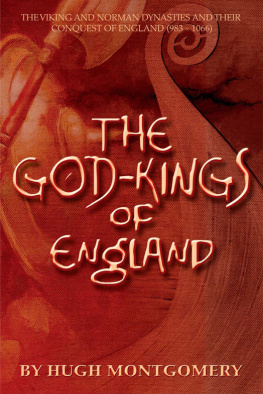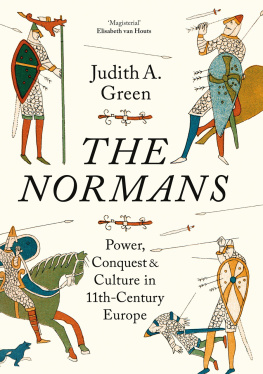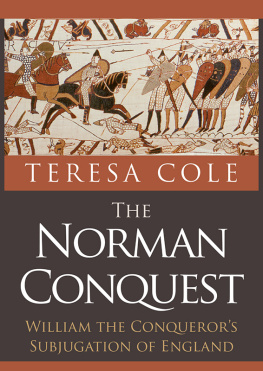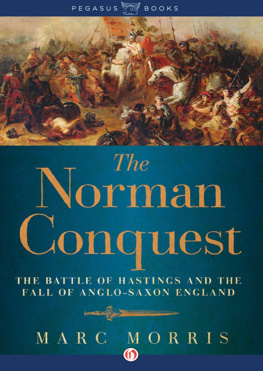Sarah Orne Jewett - The Normans; told chiefly in relation to their conquest of England
Here you can read online Sarah Orne Jewett - The Normans; told chiefly in relation to their conquest of England full text of the book (entire story) in english for free. Download pdf and epub, get meaning, cover and reviews about this ebook. year: 2019, publisher: Good Press, genre: History. Description of the work, (preface) as well as reviews are available. Best literature library LitArk.com created for fans of good reading and offers a wide selection of genres:
Romance novel
Science fiction
Adventure
Detective
Science
History
Home and family
Prose
Art
Politics
Computer
Non-fiction
Religion
Business
Children
Humor
Choose a favorite category and find really read worthwhile books. Enjoy immersion in the world of imagination, feel the emotions of the characters or learn something new for yourself, make an fascinating discovery.

- Book:The Normans; told chiefly in relation to their conquest of England
- Author:
- Publisher:Good Press
- Genre:
- Year:2019
- Rating:3 / 5
- Favourites:Add to favourites
- Your mark:
- 60
- 1
- 2
- 3
- 4
- 5
The Normans; told chiefly in relation to their conquest of England: summary, description and annotation
We offer to read an annotation, description, summary or preface (depends on what the author of the book "The Normans; told chiefly in relation to their conquest of England" wrote himself). If you haven't found the necessary information about the book — write in the comments, we will try to find it.
The Normans; told chiefly in relation to their conquest of England — read online for free the complete book (whole text) full work
Below is the text of the book, divided by pages. System saving the place of the last page read, allows you to conveniently read the book "The Normans; told chiefly in relation to their conquest of England" online for free, without having to search again every time where you left off. Put a bookmark, and you can go to the page where you finished reading at any time.
Font size:
Interval:
Bookmark:

TOLD CHIEFLY IN RELATION TO THEIR CONQUEST OF ENGLAND
BY
NEW YORK
G. P. PUTNAM'S SONS
LONDON: T. FISHER UNWIN
1898
BY
G. P. PUTNAM'S SONS
The Knickerbocker Press, New York
MY DEAR GRANDFATHER
Doctor WILLIAM PERRY, of Exeter
| I. |
| PAGE |
| The ancient Northmen, . |
| II. |
| Harold Haarfager, . |
| III. |
| French influences; Charlemagne; Charles the Fat, . |
| IV. |
| Longsword's son, . |
| V. |
| Richard the Good's succession, . |
| VI. |
| Power and wealth of Normandy, . |
| VII. |
| Hasting the pirate, . |
| VIII. |
| Typical character of William, . |
| IX. |
| Changes in England, . |
| X. |
| Roger de Toesny, . |
| XI. |
| Cloistermen, . |
| XII. |
| Flanders, . |
| XIII. |
| Causes and effects of war, . |
| XIV. |
| Harold made king, . |
| XV. |
| Normandy makes ready for war, . |
| XVI. |
| Norman characteristics, . |
| XVII. |
| William Rufus, . |
| XVIII. |
| Development of Norman character, . |
| PAGE |
| Frontispiece |
| 1 |
| 5 |
| 13 |
| 17 |
| 21 |
| 31 |
| 77 |
| 87 |
| 105 |
| 117 |
| 127 |
| 153 |
| 157 |
| 167 |
| 179 |
| 217 |
| 221 |
| 241 |
| 253 |
| 259 |
| 263 |
| 265 |
| 273 |
| 277 |
| 281 |
| 289 |
| 297 |
| 301 |
| 305 |
| 309 |
| 325 |
| 326 |
| 329 |
| 335 |
(DUKES OF THE NORMANS)
| Parent | Child |
|---|---|
| ROLF, First Duke of the Normans, r. 911-927. | WILLIAM LONGSWORD , r. 927-943. |
| WILLIAM LONGSWORD , r. 927-943. | RICHARD THE FEARLESS , r. 943-996. |
| RICHARD THE FEARLESS , r. 943-996. | RICHARD THE GOOD , r. 996-1026. |
| Emma , m. 1. thelred II. of England; m. 2. Cnut of England and Denmark. | |
| RICHARD THE GOOD , r. 996-1026. | RICHARD III, r. 1026-1028. |
| ROBERT THE MAGNIFICENT , r. 1028-1035. | |
| ROBERT THE MAGNIFICENT , r. 1028-1035. | WILLIAM THE CONQUEROR r. 1035-1087. |
| WILLIAM THE CONQUEROR , r. 1035-1087. | ROBERT II., r. 1087-1096 (from 1096 to 1100 the Duchy was held by his brother William), and 1100-1106 (when he was overthrown at Tinchebrai by his brother Henry). |
| WILLIAM RUFUS , r. 1096-1100. | |
| HENRY I., r. 1106-1135. | |
| Adela , m. Stephen, Count of Blois. | |
| Adela , m. Stephen, Count of Blois. | STEPHEN OF BLOIS , s. 1135. |
| HENRY I., r. 1106-1135. | Matilda , m. GEOFFRY COUNT OF ANJOU AND MAINE (who won the Duchy from Stephen). |
| Matilda , m. GEOFFRY COUNT OF ANJOU AND MAINE (who won the Duchy from Stephen). | HENRY II., invested with the Duchy, 1150, d. 1189. |
| HENRY II., invested with the Duchy, 1150, d. 1189. | RICHARD THE LION-HEART , r. 1189-1199. |
| JOHN, r. 1199-1204 (when Normandy was conquered by France). |
THE MEN OF THE DRAGON SHIPS.
Survey our empire and behold our home." Byron.
Font size:
Interval:
Bookmark:
Similar books «The Normans; told chiefly in relation to their conquest of England»
Look at similar books to The Normans; told chiefly in relation to their conquest of England. We have selected literature similar in name and meaning in the hope of providing readers with more options to find new, interesting, not yet read works.
Discussion, reviews of the book The Normans; told chiefly in relation to their conquest of England and just readers' own opinions. Leave your comments, write what you think about the work, its meaning or the main characters. Specify what exactly you liked and what you didn't like, and why you think so.






